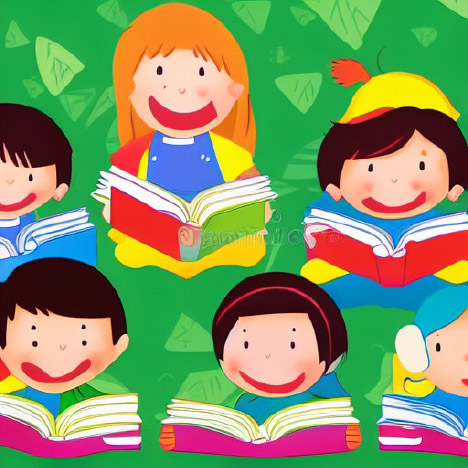Kindergarten Reading Help

Are you a Kindergartener’s parent? If so, I’m sure you’re excited about the year ahead. It’s a very important year for your child, and there are some key concepts that all Kindergarteners must learn to get the most out of Kindergarten. One of the most important is ensuring they develop a love of reading. Here are some reading help tips to make that happen.
Did you know that children who regularly read in Kindergarten tend to have higher grades and standardized test scores throughout their academic career? It’s true! Reading helps children learn new words, think critically, and problem solve. And it’s never too early to start.
So how can you help your child become a reader? Here are a few tips:
- Make time each day for your child to read independently. Even just 10 minutes can make a difference.
- Read together as often as possible.
- Provide plenty of opportunities for your child to read and look through books outside of schoolwork. Let them choose what they want to read, and don’t push anything on them that they’re not interested in.
- Encourage positive attitudes toward reading by setting a good example yourself! If you enjoy reading yourself, your child will likely follow suit.”
Below are five basic skills that all Kindergartners must master:
Identify phonemes and words in spoken language:
Phonemes are the individual sounds that make up words. Help your child break down words into their individual sounds, and then put them back together again. Practice this skill often and use different letters and sounds, so your Kindergartener has a solid base of understanding of this key concept.
Match letters and sounds:
Your Kindergartener should be able to match the letters and sounds before the end of the year. One way to help with this is by playing letter sound games. There are many online, and you can also make up your own! Read common high-frequency words: These are the words that appear most often in reading materials. Mastering these words will help your Kindergartener be able to read with greater ease and confidence. A great way to practice these words is by using flashcards. This helps develop phonemic awareness and also relates the letter to the correct sounds.
Recognize words that rhyme:
Help your Kindergartener to identify words that rhyme and create lists of these words. You can use children’s books, songs, and nursery rhymes to find examples of words that rhyme. Use these words to play games, and make up silly songs and sayings to make it even more fun!
Retell with prompting a story read-aloud:
A critical skill Kindergarteners should possess is the ability to retell a simple story, with some prompting. What that means is being able to answer basic questions about the characters, setting, and plot of the story. This can be practiced by reading stories together and then asking your child questions about what they just read.
Identify concepts of print in the text:
Concepts of print are all of the different elements that make up a text. This includes the title, author, and illustrator’s name. It also includes things like the front and back covers, the book’s spine, text read from left to right, and the ability to identify capital letters versus lowercase letters. Helping your Kindergartener identify these concepts will make reading easier and more enjoyable for them.
It is never too early to start reading with your child and help them develop the skills they need for Kindergarten and beyond. The tips in this article will give you a head-start on doing just that. Make time each day for reading, find fun ways to practice reading skills, and most importantly, create a positive attitude toward reading in your child. With these simple steps, you can help your Kindergartener become a successful reader and have a very successful and fun Kindergarten experience!
For more information on reading help for Kindergarten, check out Dr. Kim’s article on Kindergarten Reading Standards
